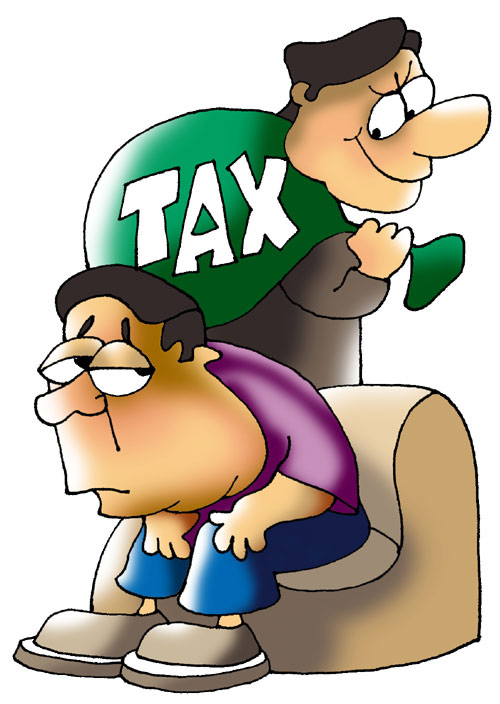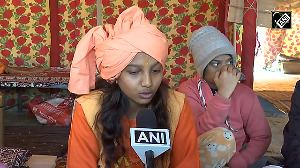Many exemptions make little sense, such as a monthly exemption of Rs 100 for college education and Rs 300 for hostel fees.
 If an employee is not paid any house rent allowance, he will get a tax exemption of up to Rs 2,000.
If an employee is not paid any house rent allowance, he will get a tax exemption of up to Rs 2,000.
"The number was quite decent for a small house in the 1990s but means nothing today. Even in a smaller city, the monthly rent is as high as Rs 5,000. And, in cities such as Mumbai, Delhi or Bengaluru, even if one shares the room with several people, this amount would fall short," says Rakesh Rai, an employee with a telecom company.
With the Union Budget approaching, Finance Minister Arun Jaitley will be inundated with requests from all sections. Everyone would want sops. If the minister would simply enhance the existing limits for many outdated exemptions, consumers would stand to gain immensely.
While the finance minister made some good changes in the previous Budget, the net impact on the taxpayer was quite limited.
For example: The 80C limit was increased by Rs 50,000 to Rs 1.5 lakh, Rs 50,000 was allowed towards contribution to the National Pension System (NPS) and health insurance deduction of Rs 25,000.
The interest component benefit on home loans was increased by Rs 50,000 to Rs 2 lakh. And, finally, transportation allowance was raised from Rs 9,600 a year to Rs 19,200 a year. However, according to tax experts, for someone with a taxable income of Rs 8 lakh a year and making use of all the deductions, the annual saving was Rs 16,398. For those earning above Rs 1 crore, the tax outgo was up due to the two per cent surcharge.
No wonder, experts believe that besides changes in slabs, the finance minister should look at some exemptions as well.
Says Sonu Iyer, partner at EY: "These exemptions have not kept pace with time. Actual expenditure incurred by a common man has gone up considerably, given the rate of inflation. For instance, medical reimbursement of Rs 15,000 per annum, if adjusted for inflation, should have been Rs 46,200 per annum in financial year 2015-16. The current exemption limit recognises only a third of the expenditure."
Ridiculous numbers: Some numbers are ridiculous. For example, the monthly child education allowance of Rs 100 and hostel allowance of Rs 300 per child, for a maximum of two children. These guidelines were set in 1997-98.
Even if one adjusts for consumer price inflation, these would still look very low, at Rs 330 and Rs 989, respectively. One wonders if education or accommodation is available at these costs at all.
According to newspaper reports, the average annual fee in CBSE schools is between Rs 40,000 and Rs 4.5 lakh. Most schools increase the fees by eight to 10 per cent a year.
Says Gaurav Roy, co-founder and operations head at BigDecisions.com: "Not only high-end schools but even regular schools charge higher fees. While it is difficult to put a figure on how much it should be increased to, there should be some benchmark. Maybe it can be linked to the fees charged by schools where half of all students go to."
Says Suraj Nangia, partner, Nangia & Co: "One would wonder that these antiquated exemption limits continue to be there as a namesake and serve no good purpose to the salaried class. Likewise, the years-old medical reimbursements continue to be exempt up to Rs 15,000 per annum, when health care facilities have become costly."
According to him, there are certain special allowances such as border/remote area allowance or tribal area allowance which still carry monthly exemption as low as Rs 200.
It is time all such limits be revised to make sense for salaried employees. Most people don't even claim these deductions; there is more work involved in documentation than the benefit.
While the minister raised the travel allowance from Rs 800 to Rs 1,600 a month in the previous Budget, it is inadequate. "Rs 1,600 a month is sufficient to cover travel costs for mass transport options (like train and bus passes) but insufficient for most large cities or metros, where travel costs may exceed this amount when you consider the last mile to be covered by cab or rickshaw. Such limits should preferably be revised to reflect the true cost of travel," says a financial planner.
Double whammy of high inflation and low returns: Low or meaningless tax exemptions pinch consumers more because 2015-16 hasn't been the best of years for both consumers and investors.
The Consumer Price Index (CPI)-based inflation, after falling, has started to rise again. In August 2015, the CPI rise fell to a low of 3.66 per cent, even lower than savings deposit rates of four per cent for most banks, leading to a positive real interest rate regime even if one had kept money idle in a bank.
However, in January 2016, the number is back at 5.69 per cent, the highest in the past 12 months. Prices of pulses and vegetables have been on the rise, hitting the consumer's monthly balance sheet.
Similarly, investors have little to cheer. Unless they have invested in debt funds or fixed deposits or small savings schemes, they are sitting on losses. With both the Sensex and Nifty benchmark indices down a little over nine per cent in the past year and the category average returns of even large-cap funds down 17 per cent, managing of money has been difficult.
Category average returns of multi-cap, mid-cap and small-cap have fared marginally better at -14.49 per cent, - 11.76 per cent and -9.72 per cent, according to data from Value Research. While gold is up five per cent, it has lost its edge as a hedge against inflation.
Long-term exemptions are too little: Even some long-term exemptions are inadequate. "Some exemptions are for a benefit received over the entire lifetime of an individual. For instance, Section 10 (10AA) of the Income Tax Act provides an exemption for leave encashment received on retirement of employment up to a maximum amount of Rs 3 lakh during the lifetime of an employee," says Iyer, adding this should be raised to Rs 10 lakh, in line with the increase in the limit on gratuity.
Similarly, Section 10 (10C) provides exemption for any Voluntary Retirement Scheme compensation received by an employee, subject to a maximum of Rs 5 lakh during the entire lifetime. A revision is required.
As specified above, a salaried individual cannot claim deduction for any expenditure from his/her taxable income, except for specific deductions on investments or exemptions. "Given that the prescribed limits for expenditures have not remained realistic, levying of tax reduces disposable income in the hands of the individual and dis-incentivises investment," says Iyer.
Besides bringing these exemptions in line with inflation rates, there are many other suggestions. For example, Roy feels linking Section 80C to salary will help a lot. "The limit available under 80C, currently Rs 1.5 lakh should be linked to tax-payers' salary since the section encourages people to save for the long term."
When people's salary increases, their ability to save also increases. So, they should be given an incentive to save more by offering a higher tax incentive. For instance, for many tax-payers, especially those in the higher tax bracket, Employees' Provident Fund takes up the whole limit of Rs 1.5 lakh. This is non-negotiable, since it is part of salary. "As a result, other investments like insurance or Public Provident Fund, which are good instruments for long-term savings and retirement do not get tax benefits. Offering a tax incentive will encourage financial prudence among investors," Roy adds.












 © 2025 Rediff.com -
© 2025 Rediff.com -